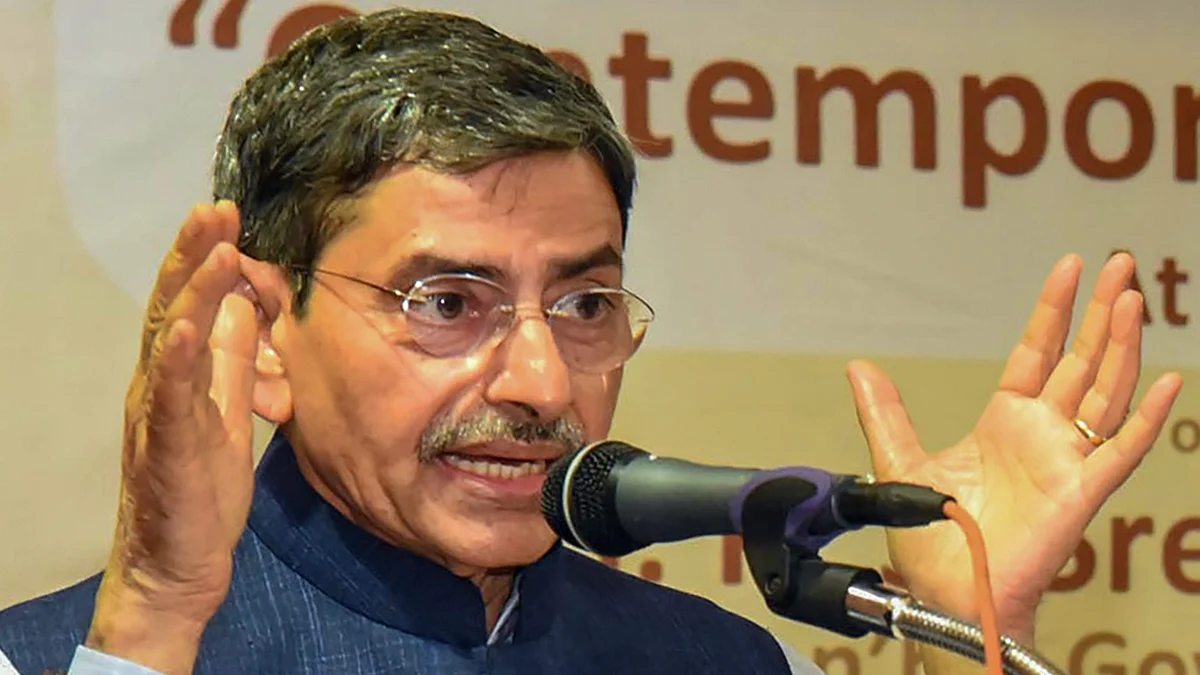TN politics is not regionalism, but Tamil exceptionalism: Governor Ravi
Tamil exceptionalism articulated by 'hatred' against other languages, even those from Dravidian family, says controversial governor

Tamil Nadu’s long-running tussle between the DMK government and governor R.N. Ravi gained fresh momentum this week after the governor declared that Tamil Nadu politics is grounded not in regionalism but in what he termed “Tamil exceptionalism” — a tendency, he argued, to insist on the distinctiveness of Tamil identity at the expense of other linguistic traditions.
His comments, delivered in a televised interview, have come at a moment when the relationship between Raj Bhavan and Fort St George is already under legal and Constitutional scrutiny.
“Tamil Nadu politics is not regionalism, it is essentially Tamil exceptionalism, which insists that Tamil is distinct from other languages,” Ravi said. “This Tamil exceptionalism is articulated by hatred against other languages, even those that belong to the Dravidian family like Telugu, Kannada and Malayalam. It is not just Hindi.”
This line of argument is deeply contentious in a state where resistance to linguistic imposition — especially Hindi — has a specific historical grounding. Ravi suggested, however, that the sentiment had expanded into a broader hostility even toward other Dravidian languages.
Ravi’s comments come against the backdrop of frequent confrontations with chief minister M.K. Stalin’s government, which has accused him of overstepping Constitutional boundaries. These clashes have ranged from disagreements over Assembly speeches, delays in forwarding Bills to the President, and disputes over university appointments, to ideological disagreements on NEET and federal powers.
His January 2023 Assembly walk-out, in which he refused to read the government-approved address and exited the chamber after the CM intervened, remains one of the most dramatic manifestations of this estrangement. Months later, his remark referring to the state as 'Tamizhagam' sparked an uproar, with Dravidian parties accusing him of undermining the historical and political significance of the name 'Tamil Nadu'.
These tensions have escalated into an institutional conflict currently before the Supreme Court. In late 2023, the Tamil Nadu government filed a petition accusing Ravi of creating a “Constitutional deadlock” by indefinitely withholding or delaying the passage of several Bills passed by the Assembly.
The state argued that such conduct amounted to paralysing governance, violating the Constitutional obligation that a governor must act “on the aid and advice of the Council of Ministers”.
The Supreme Court, while hearing the matter, criticised the emerging trend of governors across India “sitting on Bills”, observing that such delays could not be justified under the Constitution. The court’s hearings have become a pivotal test case for the limits of gubernatorial discretion in a federal setup — placing Ravi’s tenure under national judicial scrutiny even as political tensions continue on the ground.
The bench has indicated that it will lay down guidelines on governors' handling of legislation, a judgment that could have far-reaching implications for Centre–state relations. For the DMK, the case has become a symbol of what it sees as an attempt by the Union government, via the governor’s office, to weaken state autonomy.
In his interview, Ravi argued that while Tamil politicians speak often of linguistic pride, they have failed to strengthen Tamil scholarship or preserve cultural heritage: “Tamil politicians do not really love Tamil, as they haven’t done anything for the promotion of Tamil language or Tamil culture.”
He highlighted declining student enrolment in Tamil-medium schooling: “Students are moving away from Tamil medium to English medium… the number pursuing studies in Tamil is declining steadily and steeply.”
He further alleged that the Tamil Nadu government had provided “zero budget for research” on Tamil language and culture, citing the neglected condition of palm-leaf manuscripts: “There are over 11 lakh palm leaves manuscripts rotting in the state archive. No money is allotted for their preservation.”
The DMK government, for its part, maintains that funding for Tamil research institutions has in fact risen, though the debate remains politically charged.
Ravi also referenced the Doordarshan Tamil Thai Vazhthu controversy of October 2024, when the state government accused organisers of omitting the word 'Dravida' from the anthem. Ravi dismissed the episode: “The DMK-led Tamil Nadu government made a fuss over nothing… In fact, I can sing Tamil Thai Vazhthu much better than many people who talk about Tamil.”
The matter added to an already strained relationship, especially as the anthem serves as a cultural marker of Dravidian identity.
Ravi said his decision to walk out of the Assembly was forced by Constitutional duty: “I have a Constitutional obligation to defend the Constitution and Article 51A… the national anthem must be respected.”
He claimed that sessions attended by a governor or the President must start and end with the anthem. Critics argued the dispute was a pretext for avoiding an address he disagreed with.
Ravi’s earlier tenure as governor of Nagaland and Meghalaya was also marked by confrontations. His public letter accusing Naga groups of insincerity derailed peace negotiations, prompting backlash from civil-society groups and even a rare unanimous Assembly resolution urging him to “respect the federal structure”.
Ravi also spoke at length about Jammu and Kashmir and the North-East — regions where he served as an intelligence officer — offering assessments that aligned closely with the Union government’s security-centric policies.
With the Supreme Court case ongoing, Ravi’s latest remarks on “Tamil exceptionalism” are likely to deepen the fracture between Raj Bhavan and the state government. For many political observers, the conflict is no longer merely rhetorical or personal but emblematic of a wider struggle between Dravidian federalism and what they see as an increasingly centralised, homogenising national governance model.
With PTI inputs
Follow us on: Facebook, Twitter, Google News, Instagram
Join our official telegram channel (@nationalherald) and stay updated with the latest headlines
